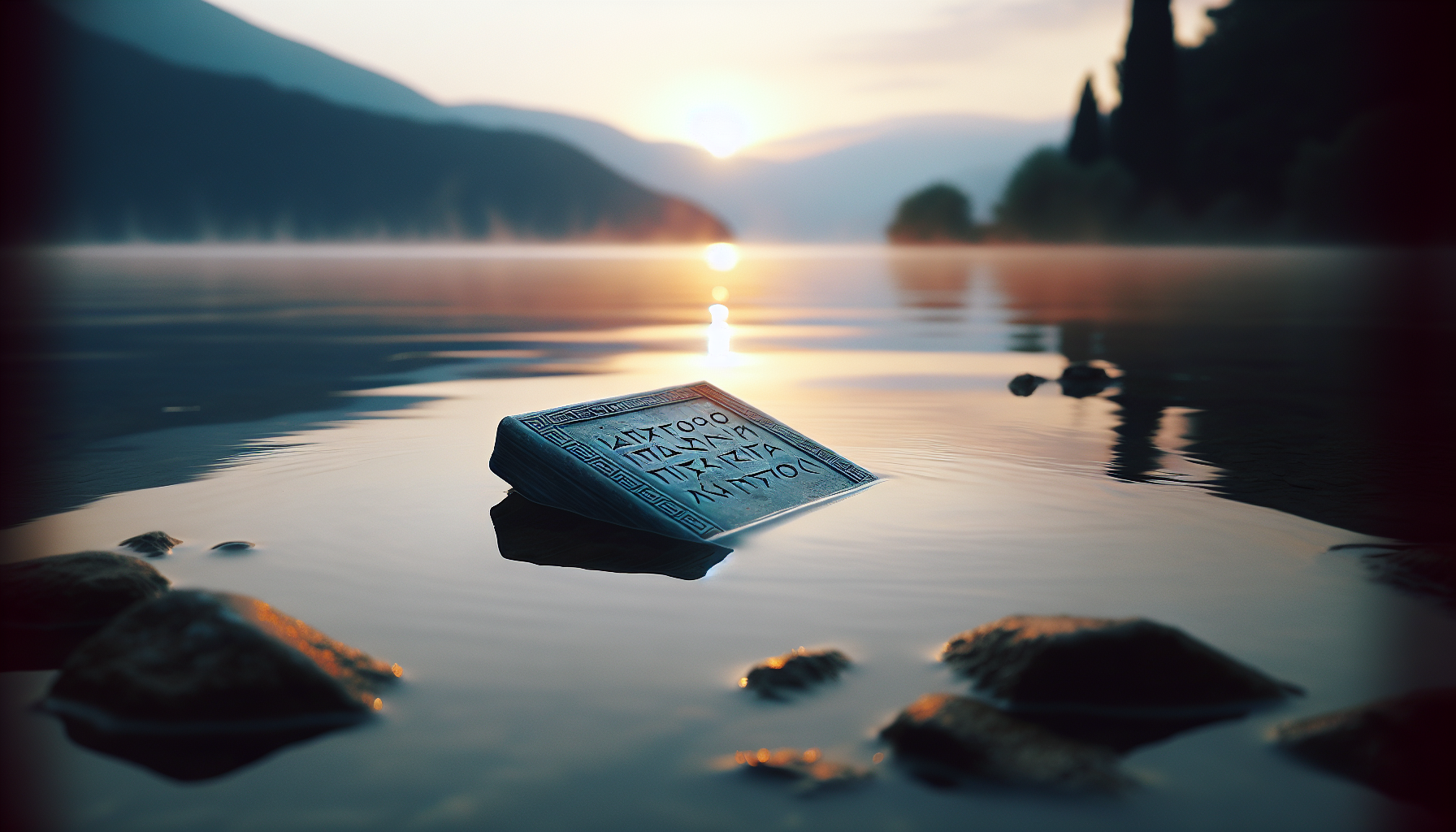Plutarch's Philosophy Of Tranquility: Finding Calm In A Chaotic World
Tranquility

Plutarch's Philosophy of Tranquility
Plutarch, the ancient Greek philosopher and biographer, certainly had a way with words, spinning wisdom like a master tailor. Born around 46 AD in Cheronrea, Greece, he wasn't just a casual philosopher hanging out under olive trees; he was a Roman citizen who managed to straddle the philosophical and political realms like a well-balanced tightrope walker. His take on tranquility? It’s not just sipping herbal tea while watching the sunset—oh no, it’s a mental fortress in the chaotic world we live in.
In "On Tranquility," Plutarch posits that our mental state is heavily influenced by the past, present, and future. He suggests that true tranquility comes from understanding—and let’s face it, a good dose of ignorance about what others think. Modern readers can relate; who hasn’t felt the urge to shout, “I care not!” when faced with today’s absurd news cycle? This ancient wisdom complicates our love for instant gratification—it's almost like he's telling us to take a breath and rethink those impulsive online shopping sprees. [Source]
Mastering Serene Detachment
Plutarch’s take on tranquility is like that stale bread no one wants to eat at a party: a bit dry, yet surprisingly fulfilling once you get a taste. He suggests that true tranquility isn’t about sipping piña coladas on a serene beach but rather keeping your cool amidst the chaotic circus of life. According to him, it’s all about mastering the art of serene detachment; think of it as a mental Teflon coating that lets life’s mess slide right off.
In his *Moralia*, Plutarch argues that tranquility requires a deep understanding of the self and a firm grip on one’s emotions, unlike our modern obsession with bubble baths and mindfulness apps that sometimes *fail spectacularly* to deliver any real peace. This Stoic-inspired perspective flips our contemporary views on their heads, suggesting that tranquility is more about internal discipline than external circumstances. Forget candles and calming playlists; try indulging in a daily meditation on your absurdity instead. [Source]
Embracing the 'Here and Now'
Plutarch, that ancient gossip columnist from Greece, had a few thoughts about tranquility that could make even the busiest modern-day influencer reconsider their life choices. He had the audacity to suggest that if we focus too much on our past missteps or future anxieties, we might just miss the subtle joys of the present moment. It’s almost as if he was saying, “Hey, stop scrolling through your life’s regrets!”
In his musings, Plutarch didn't shy away from referencing historical figures—because what's philosophy without a good old-fashioned name-drop? He illustrated how they achieved tranquility through virtuous living. Ironically, while modern folks are busy seeking therapy or mindfulness apps, Plutarch already had philosophical tools like self-examination and a dash of Stoicism. As he pointed out, true tranquility comes from living in accordance with virtue, which is way more sustainable than your overpriced organic kale smoothie. [Source]
Future Fears and Acceptance
Plutarch had some wise words on tranquility that are still relevant today—if you can scroll through the chaos of modern life without tossing your phone across the room. His take? The past is a ghost, the present is basically your to-do list, and the future is a place where your anxieties like to camp out like it’s a music festival.
Let’s start with the past; Plutarch encourages us to view our past as mere background noise in our epic movie, reminding us that regret is a thief. Now, onto the present; being fully in the now is where the magic happens… or at least where you realize you haven’t eaten lunch yet. Finally, we land on the future; Plutarch suggests embracing uncertainty. Remember, worrying about tomorrow won’t give you a better Thursday. [Source]
Finding Balance in the Chaos
In a world that thrives on chaos and speed, Plutarch's take on tranquility offers a refreshingly ironic manual for surviving modern life's absurdities. He posits that tranquility allows us to maintain a clear perspective, like a Zen master in rush hour traffic. This clarity is crucial because, let’s face it, worrying changes nothing; the future will happen whether you scroll through Twitter or not.
So, take a deep breath, channel your inner Plutarch, and perhaps consider leaving your phone in another room every once in a while. You might just find that tranquility is a suitable companion on this wild ride we call existence. [Source]